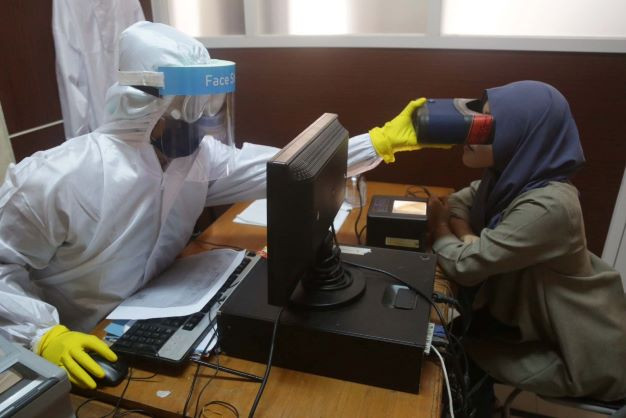Popular Reads
Top Results
Can't find what you're looking for?
View all search resultsPopular Reads
Top Results
Can't find what you're looking for?
View all search resultsInformation asymmetries and personal data protection
With the help of artificial intelligence, companies read consumers' preferences, arrange targeted ads and in some cases, personalize pricing.
Change text size
Gift Premium Articles
to Anyone
C
onsumers’ privacy in the digital space benefits not only individuals but also society as a whole. Both the market and the government play a crucial in facilitating this, and the Personal Data Protection (PDP) bill can either support or hamper the process.
From a human rights perspective, personal information belongs to individuals. However, from a micro-economic standpoint, privacy is often associated with information asymmetry — a market failure caused by a party possessing more information than the other.
When a party knows something in a transaction that others do not, there is a potential imbalance, inefficiency and even room for the exploitation of parties with sub-optimal information. Banks or health insurance firms, for example, face the unobservable financial or health risks of the consumers. Consumers, on the other hand, may be tricked by insurance or financial agents into buying products that they do not need.
The private market, especially with the help of big data, can sometimes address the asymmetries on its own. As property rights of personal information are assigned to individuals, companies could “buy” them and offer free and personalized digital services in return. With the help of artificial intelligence, companies read consumers' preferences, arrange targeted ads and in some cases, personalize pricing.
However, the market should not be left unsupervised in managing personal information. In Indonesia, the handing over of personal information in technology-enabled services, even voluntarily, has led to damaging practices. Aggressive debt collection from the borrower’s contacts in peer-to-peer (P2P) lending is among the most notorious examples.
In this case, the information asymmetries happened twice. The P2P platforms were unable to assess the borrowers’ creditworthiness and wanted to minimize default risks by collecting their mobile internet data and contact list. The consumers were faced with a lack of transparency on the purpose of the data collected by the platforms and gave their consent with minimum awareness of the potentially harmful practices by the data collectors and controllers.
The government stepped in and attempted to correct the failures from both sides. The Financial Services Authority (OJK), through Circular No. S72/NB/13/2019 responded with a “whitelisting” approach, banning fintech firms from accessing mobile internet data other than the camera, location and microphone. Although, findings from a Center for Indonesian Policy Studies study in 2021 highlighted that without simultaneous efforts to increase the reliability of the credit report system, this policy could hurt the P2P lending sector.


















